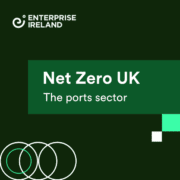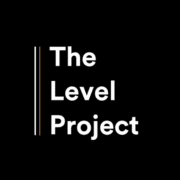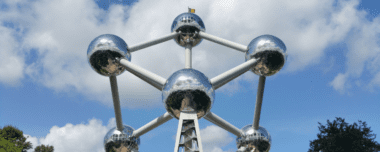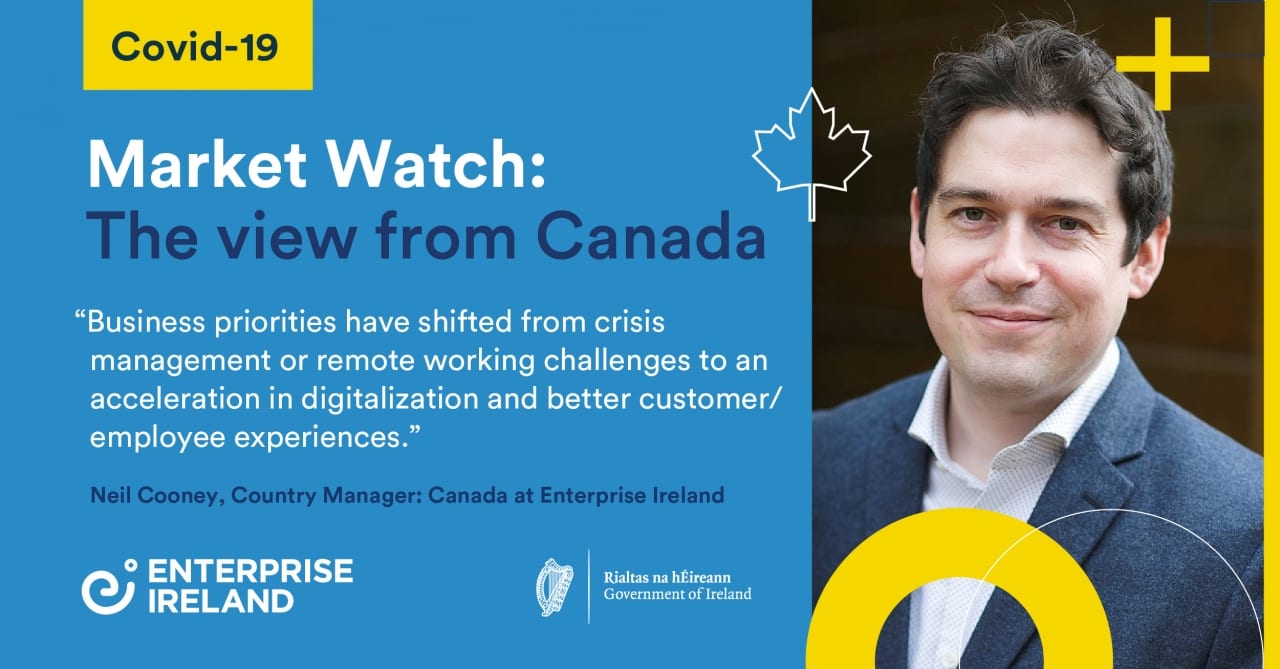Start-Up Showcase: Demonstrating Ireland’s strength in supporting entrepreneurs
Events over the past few years have made the business environment challenging to navigate but have also presented some unprecedented opportunities for Ireland’s innovative and dynamic entrepreneurs.
Enterprise Ireland’s aim to support start-ups
In a rapidly changing world, innovation is vital, making it so important for Enterprise Ireland to nurture and support promising ideas and those who produce them.
“We have a hotbed of talent and innovation in Ireland right now, so it’s more imperative than ever that our entrepreneurs are given the time, funding and advice to excel on a global scale,” says Jennifer Melia, Divisional Manager, Technology and Services Division at Enterprise Ireland.
“At Enterprise Ireland, we aim to support and enable Irish businesses to lead in a changing world – and an integral part of this is those ambitious start-ups with innovative solutions to tackle global problems.”
125 start-ups attend Start-Up Showcase 2022
Our strength in innovation was recently demonstrated in Enterprise Ireland’s 2022 Start-Up Showcase, which was held in the Aviva Stadium on Thursday, 7 April.
Making a welcome return in person – last year’s Start-Up Showcase was wholly virtual – the event was attended by the ‘Class of 2021’. This included 82 new High Potential Start-Ups (HPSUs), 43 approved Competitive Start Fund companies (CSFs) and representatives from each of the 32 New Frontiers programmes we supported during the year.
This number was on a par with previous years; considering the difficult business environment in 2020 and 2021, this is testament to the resilience of Irish start-ups and entrepreneurs.
Interestingly, and reflecting Enterprise Ireland’s commitment to supporting diversity in leadership teams, 24 of the 82 HPSUs and 16 of the 43 CSFs were led by female founders.
Learning from other success stories
“Investment and funding is only part of the recipe for success for a start-up,” explains Jennifer. “Learning from peers and those who have been on the starting and scaling journey already plays an important role in future success.
As a result, this year’s conference element at Start-Up Showcase aimed to tackle two of the most important subjects for start-ups.
The first panel focused on ‘Disruption and Customer-Led Innovation’. It featured Silvercloud Co-Founder and CEO Ken Cahill, Novus Diagnostics Founder and CEO Elaine Spain, and ACT VC General Partner John O’Sullivan.
Centaur Fund Services Founding Partner and CEO Karen Malone, Kyte Powertech CEO Stephanie Leonard and Cubic Telecom CEO Barry Napier then shared their experiences on ‘Building a Strong Team and Funding for Scale’.
The conference then ended with a keynote speech from LearnUpon Co-Founder and CEO Brendan Noud as his company, a HPSU from the Class of 2013, goes from strength to strength.
Returning to an in-person Start-Up Showcase event
Due to the public health measures, last year’s event was wholly virtual due to the ongoing Covid-19 pandemic. But this year’s was both live streamed and in person.
“As the start-ups would have begun their journey during lengthy lockdowns and travel restrictions, this event, in many cases, was one of the first opportunities to meet such an influential group of people – as well as their peers – in person,” says Jennifer. “There was a real buzz in the air.”
“In total, there were 500 attendees including representatives from the Irish start-up ecosystem, including VCs and other funders, State support agencies, strategic company partners and professional and financial services, Government departments, academics, business mentors and Local Enterprise Offices.”
Innovation and resilience among the Start-Up Showcase Class of 2021
As companies that formed during the second year of the pandemic, the ‘Class of 2021’ have shown innovation and resilience like never before. Proving that Ireland is the “go to” country when it comes to finding global solutions, these companies produced a number of solutions in many sectors, including digital health, fintech, medtech, software, sustainability and more.
“The ‘Class of 2021’ is really impressive,” says Jennifer. “Take a look at Amnexis Digital Solutions, based in the Guinness Enterprise Centre, a digital health company that records patient data efficiently, therefore reducing the administration workload on hospital, homecare and nursing home staff.”
And there’s more to come. Although we are only a few months into 2022, already the easing of restrictions has resulted in a renewed energy in Ireland’s start-up community.
“Next year’s Start-Up Showcase is looking promising even now, with a strong pipeline of promising entrepreneurs with intriguing prospects making waves across Ireland, both first-time and repeat entrepreneurs.”
The future has never been more exciting for Irish entrepreneurs to Lead in a Changing World.
Find out more about Enterprise Ireland’s supports for High Potential Start-Ups or watch the recording of the Start-Up Showcase 2022 conference.







 The Level Project has its origins in
The Level Project has its origins in  However, achieving gender balance is very much a long-term plan for a lot of companies, especially those in industries that are traditionally male dominated. For example, Shannon-based
However, achieving gender balance is very much a long-term plan for a lot of companies, especially those in industries that are traditionally male dominated. For example, Shannon-based 













